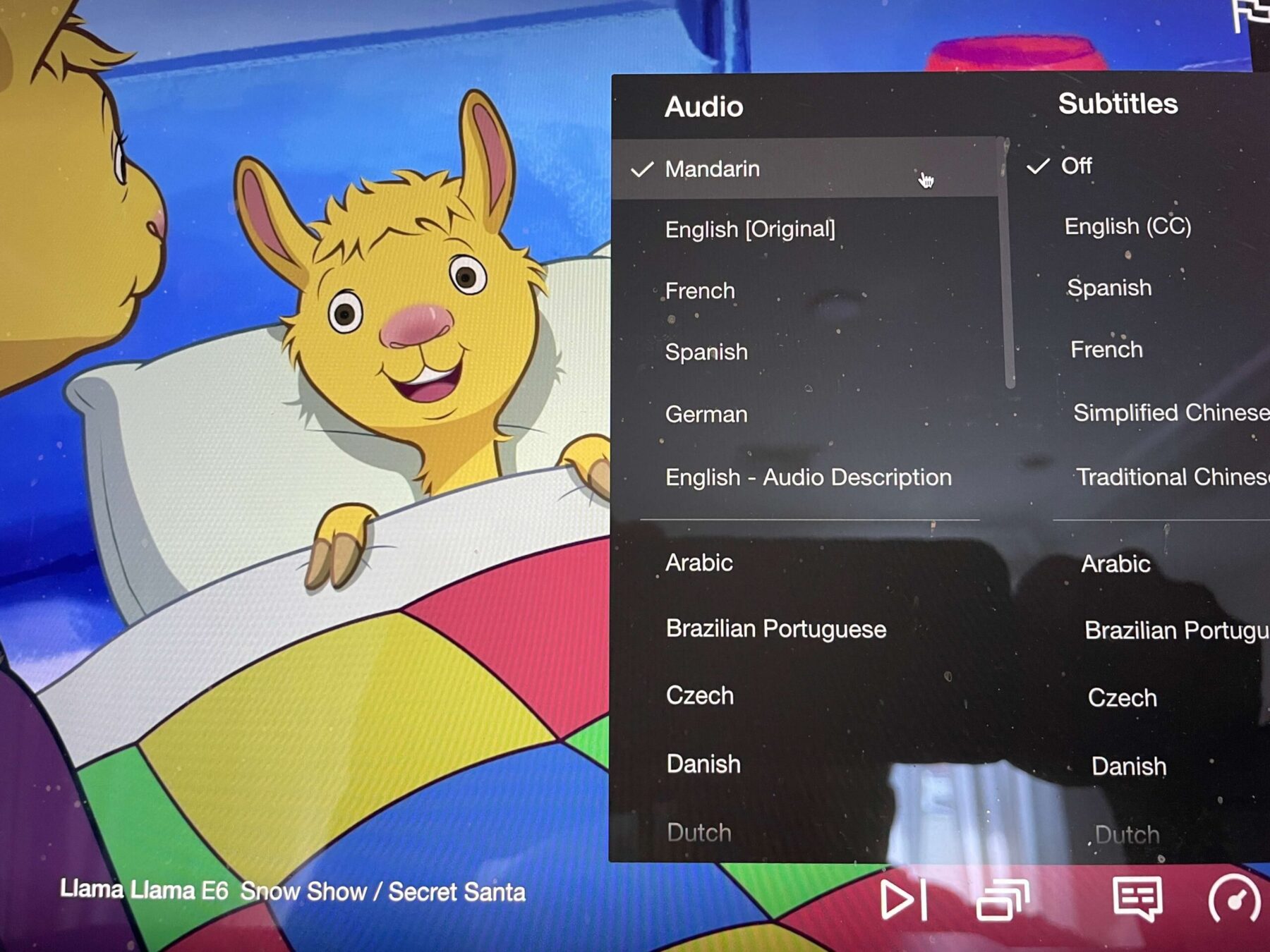
Every time I show the kids chatting away in Mandarin on Instagram stories, I get a lot of questions on bilingual parenting tips. It’s something I have had to make a conscious effort around since they were babies, but it makes my heart swell to hear them speaking fluently!
It pains me to admit that growing up, I was embarrassed whenever my family would speak Chinese in public. At school, at extracurricular events, at the grocery store – I felt like it drew attention to us as different, as immigrants, and I always replied to my parents in English. I don’t know exactly when the shift started, but now I’m so proud to still be able to speak my native language and communicate with my family members, and now some of our business vendors too. I just hope that I can persist with passing down to my kids, and that someday they’ll also embrace it as a piece of who they are.
A lot of you have asked whether we’re teaching the kids Tagalog, a common language in the Philippines. Nick’s mom never taught him the language, but it’s never too late to learn so we’ve asked her to teach all of us when possible!
I’m certainly not a language or parenting expert, but I’ve just shared some things that we do at home. The tips below use Chinese as an example of our “minority language” just to illustrate how we approach it!
1. The One Parent, One Language method (OPOL)
This common method for raising bilingual kids works well for us (though every family situation is different!) but I have to say I am definitely not strict with it, which helps eliminate stress around the process. How it works:
If one parent speaks another language
Let’s say mom is bilingual in Chinese and English, dad only speaks English. Mom speaks to the child in Chinese, and for family conversations everyone speaks in English.
If both parents speak another language
Mom is bilingual in Chinese and English, dad is bilingual in Spanish and English. Each parent primarily speaks to the child in his or her own minority language, and for family conversations it’s a chosen language that everyone understands.
A lot of people are hesitant to do this method because it sounds rigid, or they aren’t fluent in the minority language themselves. I wouldn’t worry too much about either – just try your best and speak in the minority language as much as possible for frequent exposure. Even if my kid replies to me in English, I’ll continue to speak in Chinese, and sometimes we “code switch” (change languages) partway through the conversation and that’s OK.
2. Start young and speak often (no need to translate)
It’s never too early to start! When each child was born, I aimed to speak as much Chinese as possible with them. For various reasons, especially after my daughter started preschool, it ends up actually being around 50% of the time.
When speaking to my kids in Chinese, I just speak it directly and don’t repeat or translate what I said into English. You’d be amazed at how little ones can absorb and figure out the translation in an alternate language. By the time Nori was 20 months old she would translate things that I say in Chinese (like fruits) into English for her dad, and knew whom in our extended family to speak each language to. We had never explicitly told her when certain words we spoke to her were in Chinese versus English.
3. Partners can learn a new language too
I know many who message me are worried about their partners feeling excluded from conversations because they don’t know the same minority language. My husband only used to speak English, but has picked up a tremendous amount over the past 3 years just by listening to our kids and I speak. He now knows most everyday words and phrases in Chinese, and our kids always get a kick when he speaks to them in Chinese!
4. Normalize the minority language
Whenever I have a chance to speak Chinese in public with others (like at restaurants, or parents and kids that we meet at the playground) I always make a point to, so our kids can see others interacting with us in the minority language, in everyday situations. I also ask Chinese family members to mostly speak Chinese with them as another point of exposure.
5. Seek childcare in the minority language
If you’re looking into a nanny or daycare for your child, consider a nanny who speaks mostly the minority language or bilingual immersion daycares. I meet many kids in our neighborhood who have picked up their nanny’s native language, even if their parents don’t speak it!
I don’t worry at all about my kids learning English or falling behind in English, because as soon as they enter regular school they tend to pick it up quickly. No surprise, as soon as Nori started regular daycare her English quickly soared past her Chinese.
6. Loosely translate English stories for story time
Growing up I remember the dreaded Chinese school on Sundays, flashcards, and being forced to read the Chinese newspaper as “homework.” Although I’m thankful for that in hindsight because being able to read Chinese has been very useful, I honestly don’t have the energy to do that with my own kids and want the language to be more fun for them.
- Do story times in the minority language instead of English. This doesn’t mean you need to buy books that are written in the minority language! In fact, I rarely do. I read to the kids every night before bed, and it’s usually English books that I just translate the storyline with (or embellish) using my own words in Chinese.
7. Sneak in learning during screen time
We try to use screen time to our advantage and only watch programs in the minority language. Our kids had almost exhausted the collection of Peppa Pig in Chinese on YouTube when several of you tipped us off that many shows and movies on the major streaming apps are available with multiple audio language options! Disney Plus especially has the most audio choices with tons of languages for their most popular shows and movies. I’ll always watch with the kids the first time to help explain new words and ideas (and also help brush up on my own language skills in some cases!).
Our Go-to Streaming Shows and Movies Available in Mandarin (and multiple other languages):
- Disney+
- Movies: Frozen, Mulan, Encanto, Finding Nemo, Cinderella and many more
- Shows: Bluey, Pupstruction and many more
- Netflix
- Tayo, Llama Llama, Trash Truck
- Amazon Prime Video
- Stinky and Dirty, If You Give a Mouse a Cookie

We’re always looking for more kids series or shows in Chinese – let me know any other good ones!
If you speak multiple languages (or don’t, but your family does), I’d love to hear about your experience! How was it growing up and learning (or not learning) the other language? Did you lose a lot of your speaking ability as you grew older? Do you want your kids to learn a second language?







